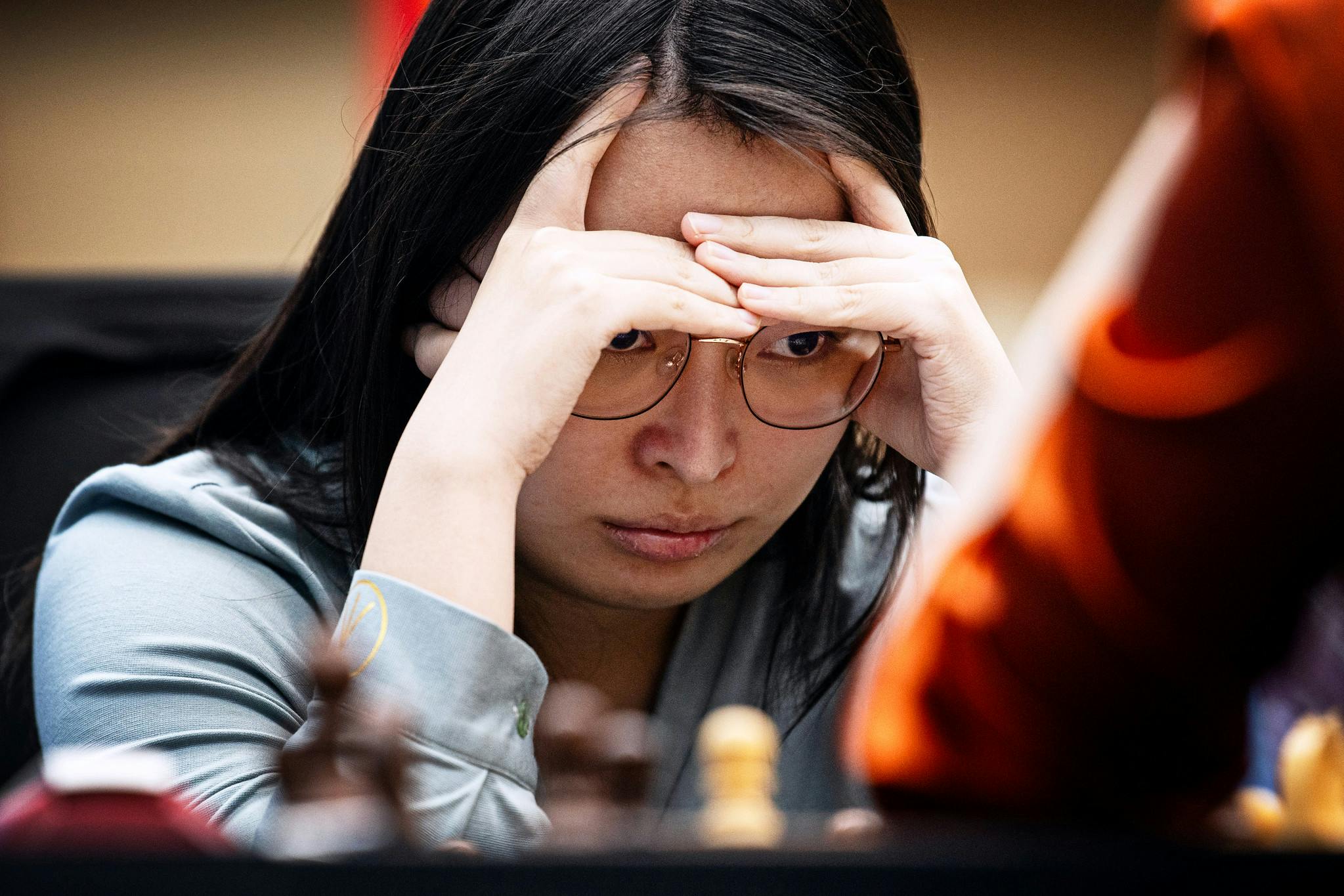Ju Wenjun is Womens World Champion
GM Ju Wenjun is Women's World Champion for the fourth time.

In the end, the Women’s World Championship was a tale of two halves. In the first half of the match, held in Shanghai, the challenger Lei Tingjie looked untouchable, giving virtually no chances for the defending champion Ju Wenjun and taking a one-game lead.
But when the match moved to Chongqing for the second half, Ju found another gear, using deft positional maneuvering to cause problems for the challenger. She evened the score in game eight and struck again in game 12 to avoid a rapid playoff and claim the title for the fourth time.
With the White pieces in game 12, some expected Ju to play it safe, force a draw, and take her chances in the rapid tiebreaker. But when she opted for the Colle System it was clear that she wanted to end the match immediately. The Colle is somewhat restrained compared to d4 mainlines, but that’s what makes it dangerous: Ju was aiming for a complex position where she could outplay her opponent and she was willing to risk a loss to do so.
The move reflected a change in opening strategy that was partly responsible for Ju’s turnaround in the second half of the match. In the first half, she tried to challenge Lei’s repertoire more directly, but could not find any chinks in the armor. In the second half, Ju was less interested in getting an advantage out of the opening, and instead aimed for complex positions where she could use her strategic understanding to outmaneuver her opponent. This proved to be more fruitful, as she also had success with a quiet variation with 1. Nf3 and 2. e3 in her win in game eight.
In game twelve, the opening led to a highly imbalanced position where White had two passed queenside pawns against Black’s central pawn mass. Objectively the position was about equal, but Ju had clearly studied the resulting middlegames in advance and was hoping to use that knowledge to outplay her opponent.
https://lichess.org/study/PQR8Cvut/6Q4HQYQd#0
Lei may have been taken somewhat by surprise, as she took some time in the opening to decide on her plan. Nonetheless, she continued playing good moves and the game remained roughly balanced. Lei went for a knight incursion on the queenside that the engine thought White could have profitably ignored, but Ju reacted with an exchange. If anything, it seemed like Lei had absorbed the opening surprise and was even gaining the upper hand.
But on move 22 she went for a disastrously misjudged pawn exchange, breaking her central pawn chain to win a White pawn that was already isolated and weak. This single mistake was all it took to decide the world championship, as Ju took the advantage and ran with it. With Black’s central pawns broken up, Ju was able to establish her knights in the center of the board.
For the rest of the game Ju’s technique was impeccable. She slowly improved her position step by step, never giving Lei a glimmer of hope. Finally, the knights escorted her passed d-pawn down the board to make a new queen, forcing Lei’s resignation.
In the post-game press conference the players remained true to the personalities they displayed throughout the match, Lei mercurial and engaging, Ju reserved and professional. If you watched with the sound off, you probably would have thought it was Lei who had won. Even after claiming such a hard-fought championship, Ju did not permit herself to smile. In contrast, Lei breathed a few sighs of regret, but also found moments to smile and laugh.

GM Lei Tingjie (Photo: FIDE, Stev Bonhag)
For Lei it was a heartbreaking end to the match, losing in the final game. Nonetheless, she certainly gained fans the world over with her dynamic, resourceful play, and her expressive personality on and off the board. At only 26 years old, it would be no surprise to see her compete for more world championships.
Meanwhile, Ju Wenjun showed once again why she is such a deserving world champion. This match marks the fourth time she has won or defended the title. It was not smooth sailing – far from it, as Lei looked untouchable in the first half, and Ju was playing from behind for much of the match.
Nonetheless, she never lost her composure, and in the second half of the match found new ways to pressure her younger opponent. When asked what she learned from the match, Lei gave credit to her opponent:
“How can you control yourself under such pressure? I learned some spirit from my opponent. Fight for every game and fight until the end.”